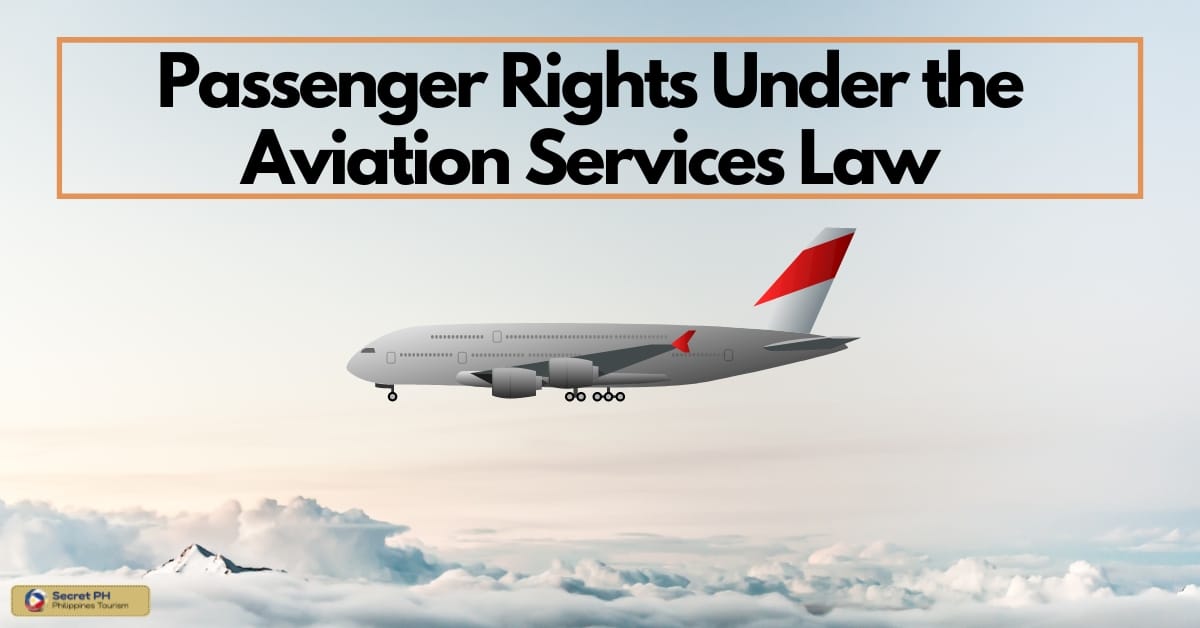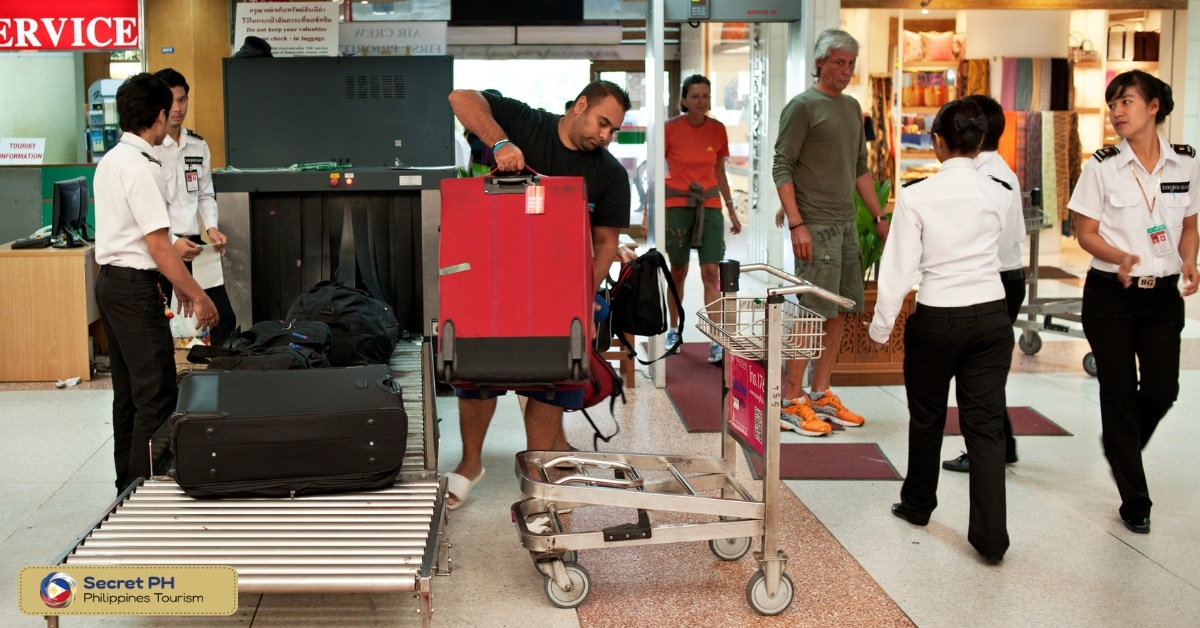The Aviation Services Law, also known as the Tibi Law, provides a comprehensive set of passenger rights for travelers in Israel, including the right to information, boarding and departure, comfort and safety, baggage, and compensation.
These rights are designed to protect passengers and ensure that they can enjoy their travel experience with minimal disruptions and inconvenience. In this blog post, we will explore the passenger rights outlined in the Aviation Services Law and how they can help ensure a smooth and enjoyable flight.

Aviation Services Law
Israel has some of the most stringent aviation service laws in the world. The service and safety standards that they require of all airlines are extremely high, which can only be met by operating an efficient, safe, and secure fleet of aircraft.
All Israeli airlines must undergo rigorous inspections by qualified officials before they can provide the public with commercial flights. These inspections are conducted to ensure that their aircraft adhere to international regulations and standards, as well as local regulations set by the Israeli government.
The Israeli Aviation Service Law is designed to protect passengers from any sort of harm caused through negligence or unprofessional behavior by pilots or flight attendants.
This law ensures that passengers have access to protection from accidents and any kind of ill-treatment during their flight. All employees working in the airline industry within Israel must adhere strictly to this law.
All aircraft should comply with safety regulations set forth by the Ministry of Transport for them to be able to operate passenger services within Israel’s airspace.
This includes detailed documentation outlining how each aircraft operates both technically and operationally by mandatory safety procedures and regulations set down by both worldwide organizations (such as ICAO) and national authorities (such as the Ministry of Transport).

The History of Tibi Law
The Tibi Law, also known as the Israeli Aviation Services Law, was passed in 1961 by the Knesset. The law created a unique legal environment for aircraft operators and passengers, unlike any other nation. It mandated insurance coverage, safety regulations, and passenger rights while traveling in Israel.
One of the main purposes of the Tibi Law is to ensure passenger safety when flying in Israel. It stipulates several regulations and agreements between aircraft companies and manufacturers to guarantee that aircraft meet safety standards and airports are maintained properly. In addition, the law requires that all aircraft must be insured with a policy approved by the Israeli Ministry of Transport before they can fly over Israel or land there.
Since its establishment in 1961, many amendments have been made to the Tibi Law over time to insure compliance with today’s safety regulations as well as passengers’ interests. This important piece of legislation has been essential for safe air travel inside Israel since its inception and has helped shape recent aviation policy domestically.
For more information on Aviation Services Law, click here.

Passenger Rights Under the Aviation Services Law in Israel
The law provides a comprehensive set of protections for travelers that are designed to ensure safety, security, and comfort while they’re in the air. By being aware of these rights, passengers can be sure that their flight will be as smooth and enjoyable as possible. Here are some of the passenger’s rights under the Tibi Law:
Right to Information
The Right to Information is one of the key passenger rights guaranteed under the Israel Aviation Services Law, also known as the Tibi Law. This right gives passengers the right to receive clear and accurate information about their:
- flight
- including flight schedules
- ticket prices
- baggage allowances, and
- seating arrangements
Airlines are also required to provide information on flight cancellations, delays, and diversions, as well as the reasons for these disruptions.
The Right to Information is important because it ensures that passengers are informed and able to make informed decisions about their air travel. This right is also critical for ensuring that passengers can plan their travel accordingly, especially in the case of flight disruptions.
Compensation Benefits
In the case of flight cancellations or delays, airlines are required to provide passengers with timely and accurate information about the status of their flight. If a flight is canceled, passengers have the right to be re-routed to their destination or to receive a refund for their ticket. In the case of significant delays, airlines are also required to provide passengers with adequate compensation and assistance, including food and drinks, as well as overnight accommodation if necessary.
In addition to the Right to Information, the Tibi Law also provides compensation benefits for passengers in the case of denied boarding, flight cancellations, and long delays. These compensation benefits are designed to compensate passengers for their inconvenience and financial losses as a result of flight disruptions.

Rights Regarding Refunds, Denied Boarding, and Overbooking
The Israeli Aviation Services Law stipulates certain rights to passengers regarding refunds, denied boarding, and overbooking. Passengers have the right to a full refund of their ticket if they are denied boarding due to overbooking or canceled flights. Passengers may also be entitled to compensation benefits if they are bumped from an overbooked flight.
In addition, airlines must provide passengers with fair treatment if they do not receive their booked services such as unsuitable seating or missing luggage. Generally, passengers can request a full refund for their unused tickets in this situation. Moreover, airlines should inform passengers about any flight delays or cancellations that may occur before the date of departure so that passengers can have enough time to make alternate travel arrangements.
Lastly, passengers have the right to claim certain compensation benefits as well as other costs associated with canceled flights or missed connections within certain limits specified by law. All these rights ensure that air travelers receive fair treatment from airline companies and airports when flying in Israel under the Tibi Law.
When you are denied boarding on a flight, you can get the privileges described in this notice if and only if:
- Your flight is scheduled to depart from an airport in Israel, or to Israel;
- You hold a confirmed reservation for the flight;
- You have met the check-in deadline;
- You are entitled to a zero-fare or discounted charge that is not openly available;
- Despite our conditions of carriage or any other sensible rationale, you aren’t excluded from boarding.
Participation in a Frequent Flyer program or holiday package does not constitute free travel under the stipulations of this notice.
Available Compensation
If you are not allowed to board the plane against your will and do not choose to voluntarily forfeit your confirmed ticket, then you are eligible for monetary compensation. The amount of this financial award is determined by the following criteria:
| Flight distance (in KM.) | Schedule Landing Time |
Compensation Amount (in NIS)*
|
| Up to 2000 |
Within 4 hours of the scheduled time
|
640 |
|
Over 4 hours from the scheduled time
|
1280 | |
| Up to 4500 |
Within 5 hours of the scheduled time
|
1025 |
|
Over 5 hours from the scheduled time
|
2050 | |
| Above 4500 |
Within 6 hours of the scheduled time
|
1540 |
|
Over 6 hours from the scheduled time
|
3080 |

Rights for Checked Baggage and Carry-Ons
Under the Israeli Aviation Services Law, passengers are entitled to certain rights regarding their checked baggage and carry-ons when flying within Israel’s borders. Passengers have the right to know beforehand the airlines’ luggage allowance policies so that they can plan accordingly.
Airlines must provide clear information about the weight limits for checked baggage and particular items that may not be allowed in a passenger’s carry-on.
Furthermore, passengers have the right to claim compensation if their luggage has been delayed or lost during air travel up to certain limits specified by law.
Additionally, airlines must provide suitable accommodation in case of flight delays or cancellations due to factors within the control of the airline such as bad weather conditions, mechanical faults, missed connection flights, etc.

Rights for Delays and Cancellations
The Israeli Aviation Services Law entitles passengers to certain rights regarding delays and cancellations during air travel. Airlines are legally obligated to provide clear information about delayed flights and expected changes in timing before the date of departure.
This is to give passengers enough time to make alternate travel arrangements. Additionally, airlines must offer compensation benefits up to a certain limit when flights have been canceled, overbooked, or delayed beyond a reasonable duration specified by law.
In case of missed connections due to airline-related factors such as bad weather conditions or mechanical faults, airlines are required to provide suitable accommodation until the next available flight.
Passengers also have the right to receive full refunds for their unused tickets if they decide not to take an alternative flight. Furthermore, airlines should inform passengers about all additional costs that may be incurred due to any delay or cancellation at least two hours before the scheduled departure time.
Should your flight be canceled or experience a delay of eight (8) hours or more, you will qualify for certain privileges outlined in this notification. This is contingent on the following:
- Your flight is scheduled to depart from an airport in Israel, or to Israel;
- You hold a confirmed reservation for the flight;
- You have met the check-in deadline;
- You are entitled to a zero-fare or discounted charge that is not openly available;
- Despite our conditions of carriage or any other sensible rationale, you aren’t excluded from boarding.

Rights for Safety and Security Issues
The Aviation Services Law in Israel provides passengers with comprehensive rights for safety and security issues. These include the right to compensation for any damages suffered during a flight, such as bodily injury or loss of luggage.
Passengers also have a right to receive information about any delays or cancellations of their flights in advance and are entitled to medical attention if they suffer an illness or accident while flying.
Finally, passengers may seek legal remedies if they feel that their rights have been violated in any way. With these Passenger Rights, travelers can rest assured that their safety and security are taken seriously under the Aviation Services Law in Israel.

Conclusion
The Aviation Services Law provides a framework for protecting the rights of passengers and ensuring their safety and comfort during air travel. Passengers should be aware of their rights and responsibilities under the law and should take advantage of the resources available to them in the event of a dispute with an airline.
By understanding their rights and knowing what to do in the event of a problem, passengers can make the most of their air travel experience and enjoy a safe and comfortable flight.








